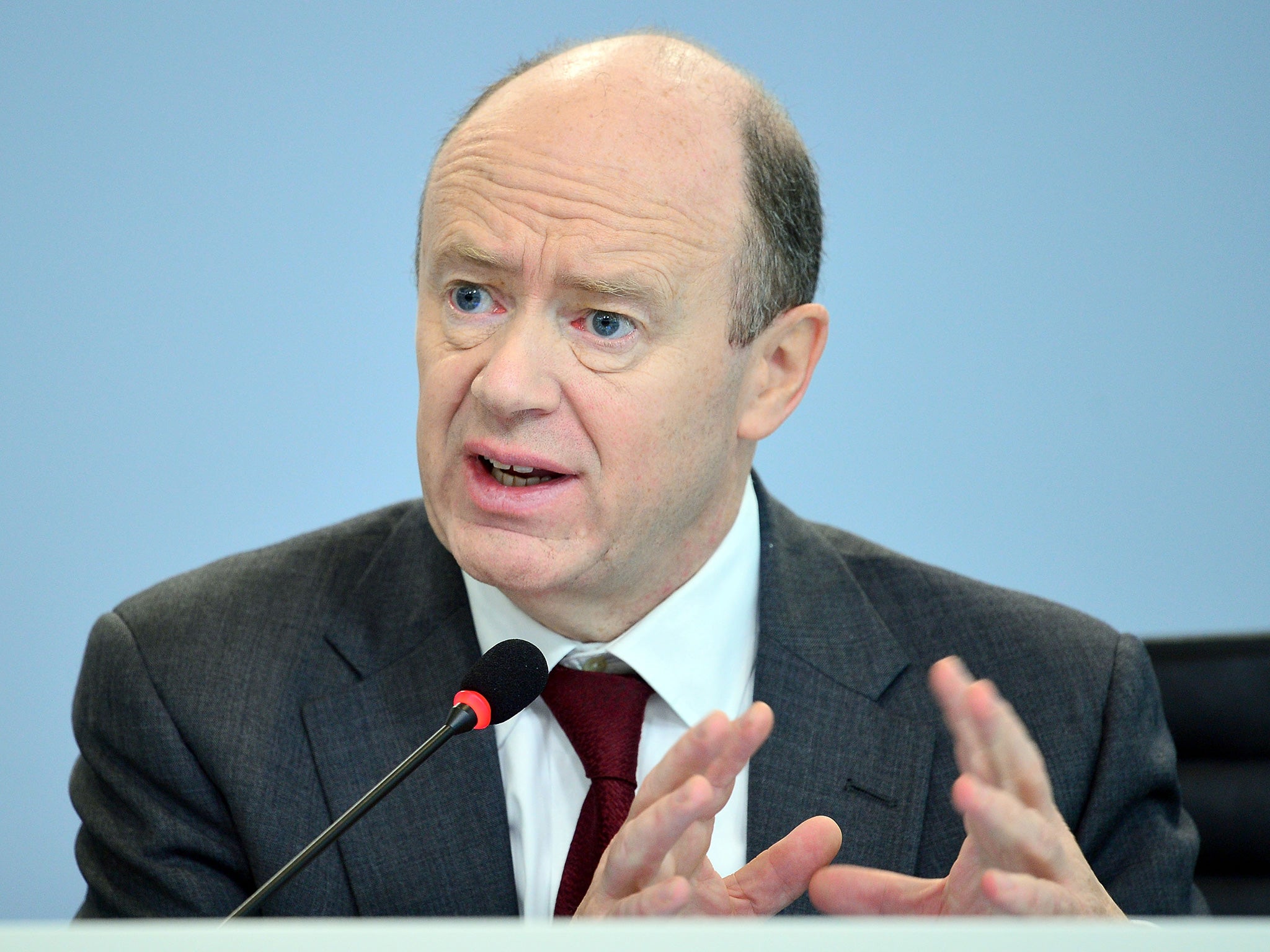Bankers’ bonuses down by up to £25,000 after tough year
Deutsche Bank’s chief executive, John Cryan, has warned staff that they will have to shoulder some of the burden of the bank’s recent struggles

Your support helps us to tell the story
From reproductive rights to climate change to Big Tech, The Independent is on the ground when the story is developing. Whether it's investigating the financials of Elon Musk's pro-Trump PAC or producing our latest documentary, 'The A Word', which shines a light on the American women fighting for reproductive rights, we know how important it is to parse out the facts from the messaging.
At such a critical moment in US history, we need reporters on the ground. Your donation allows us to keep sending journalists to speak to both sides of the story.
The Independent is trusted by Americans across the entire political spectrum. And unlike many other quality news outlets, we choose not to lock Americans out of our reporting and analysis with paywalls. We believe quality journalism should be available to everyone, paid for by those who can afford it.
Your support makes all the difference.Bankers are set for a lean Christmas, at least if the salary benchmarking website emolument.com is to be believed.
Its research shows that bankers in the struggling fixed income, currencies and commodities sector could see top-ranked managing directors giving up as much as £25,000 from last year’s average pay, leaving this year’s at £265,000. Deal advisers at the top rank could see their payments falling to an average of £239,000, from £250,000 last year.
However, the gloom will not be reflected across the board, with equity traders enjoying a 2.3 per cent rise at MD level, to £361,000.
Such across-the-board figures need to be taken with a pinch of salt because of the wide variations between and within banks. Banks will also typically pay over the odds to keep people judged to be star performers happy, while offering little or nothing to those they want to axe.
However, the data is in line with anecdotal evidence that this year’s bonus round may be more subdued than last year’s. They include statements from people running banks.
Deutsche Bank’s chief executive, John Cryan, has warned staff that they will have to shoulder some of the burden of the bank’s recent struggles. “I have no idea why I was offered a contract with a bonus in it, because I promise you I will not work any harder or any less hard in any year, in any day, because someone is going to pay me more or less,” he said, in what was widely seen as a shot across their bows.
The bank has suspended its dividend and is preparing to make thousands of job cuts, many of which will fall upon its London-based investment bank.
Emolument.com makes its bonus predictions based on figures on industry revenues supplied by business intelligence firm Coalition Index, extrapolating from how they are thought to have influenced bonus payments over the past three years.
Alice Leguay, a spokesperson for the website, said: “Previously, receiving a ‘doughnut’ or zero bonus was akin to being encouraged to find employment elsewhere. With ever more restricted bonus pools, it may be that doughnuts become more commonplace, as banks limit substantial bonus payments to staff they simply cannot afford to lose.”
Frances O’Grady, general secretary of the TUC, said she had scant sympathy with bankers: “This survey shows it would take a minimum-wage worker 25 years to earn the bonus expected this year by top City traders.
“With most workers still earning less than they did before the recession, few tears will be shed for bankers who find their six-figure annual bonus is a few pounds less than last year. We need the economic recovery to be far more fairly shared amongst all workers in 2016.”
Join our commenting forum
Join thought-provoking conversations, follow other Independent readers and see their replies
8Comments